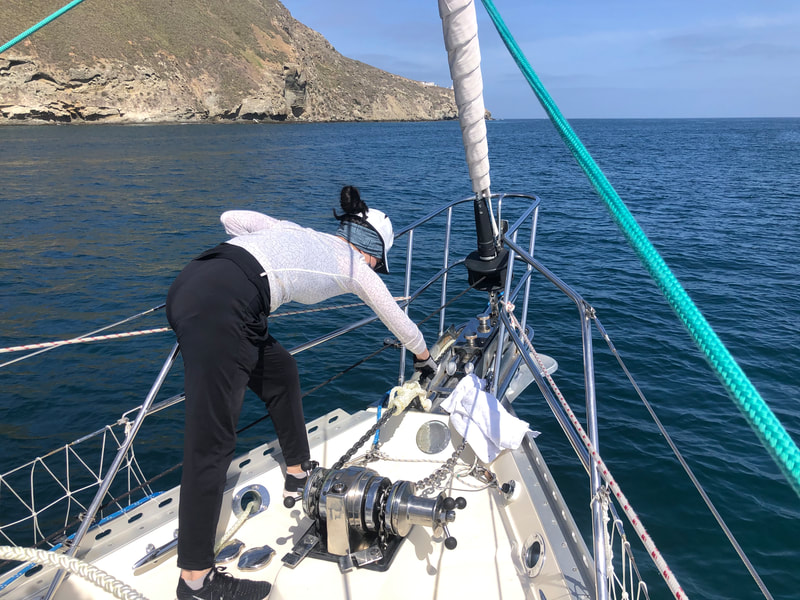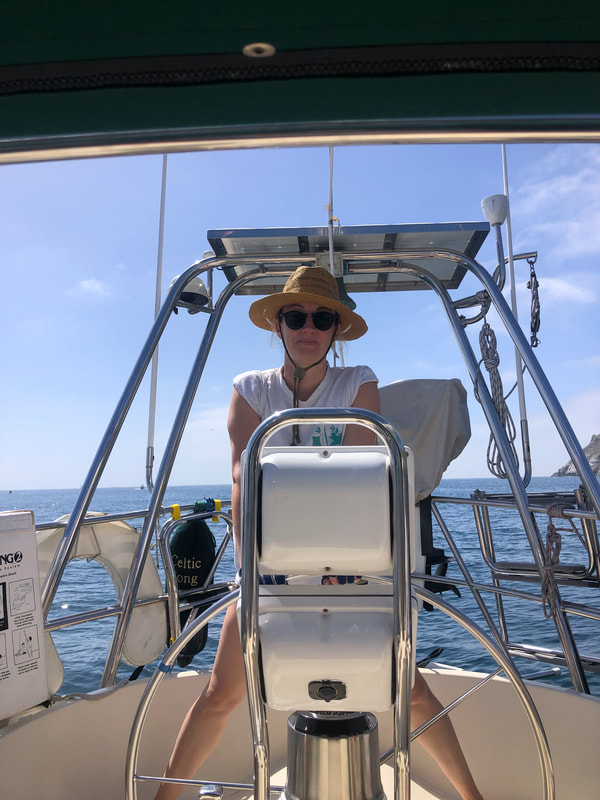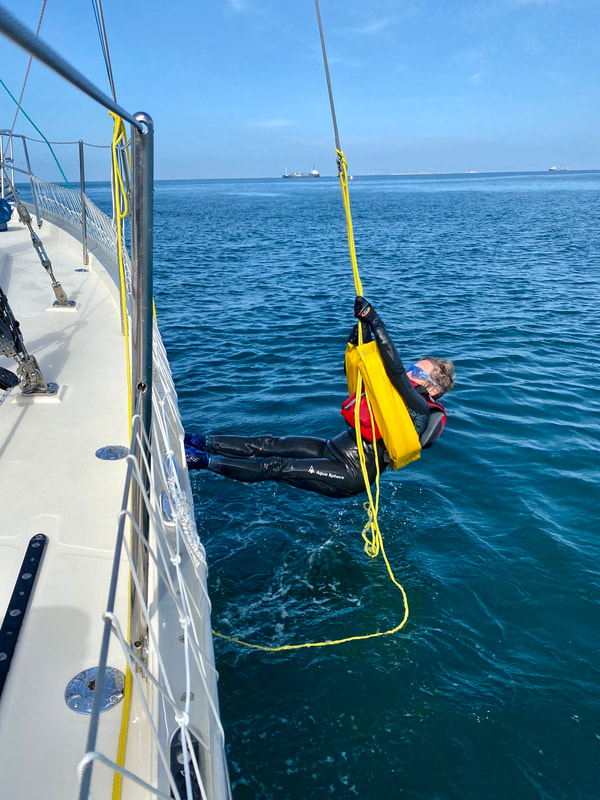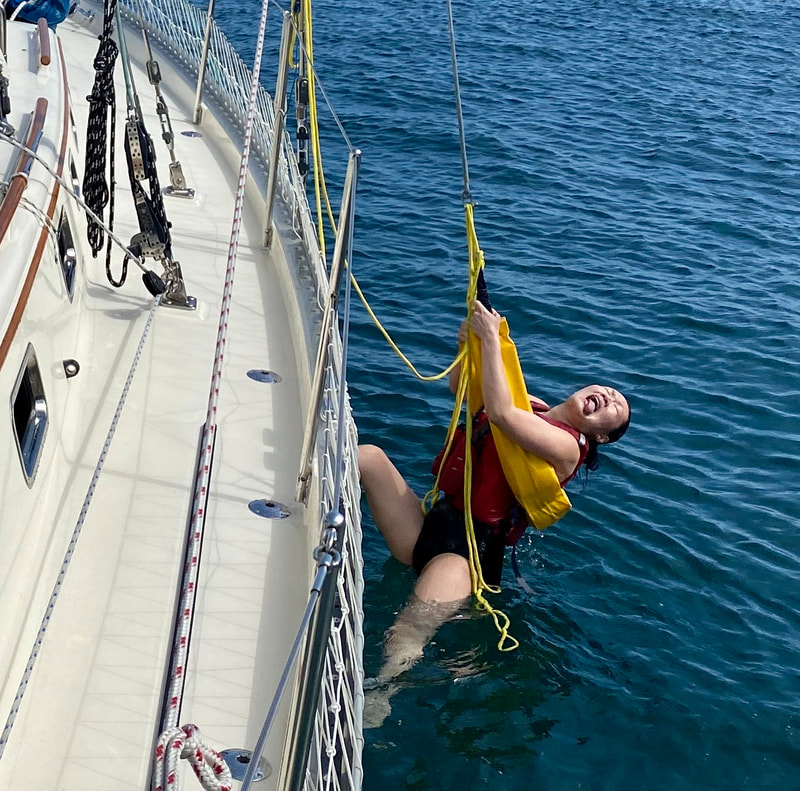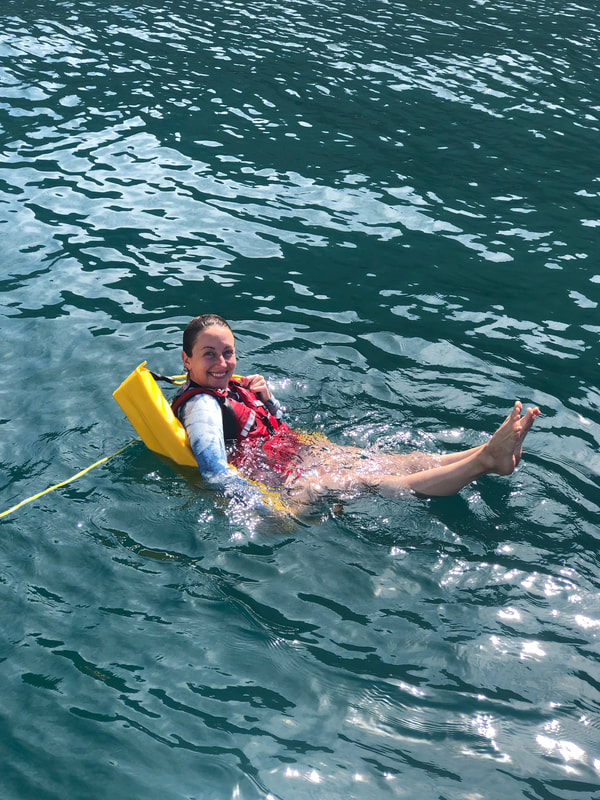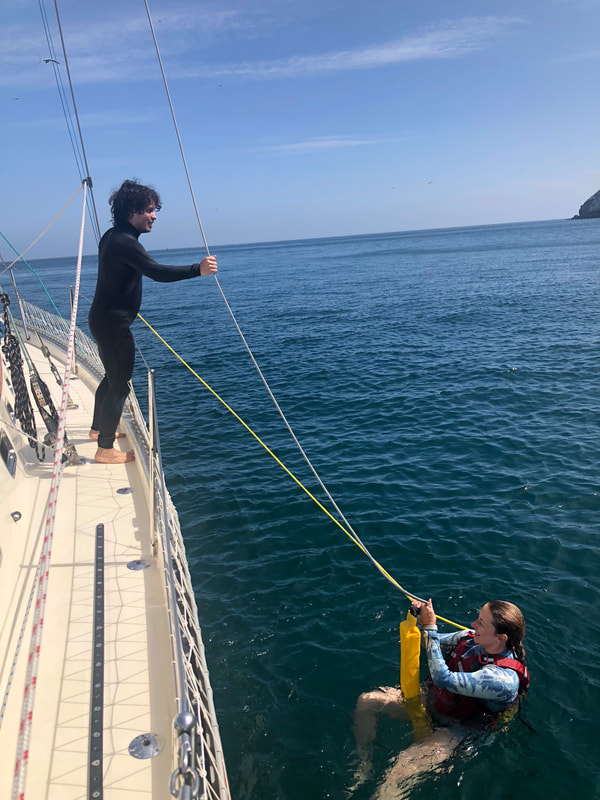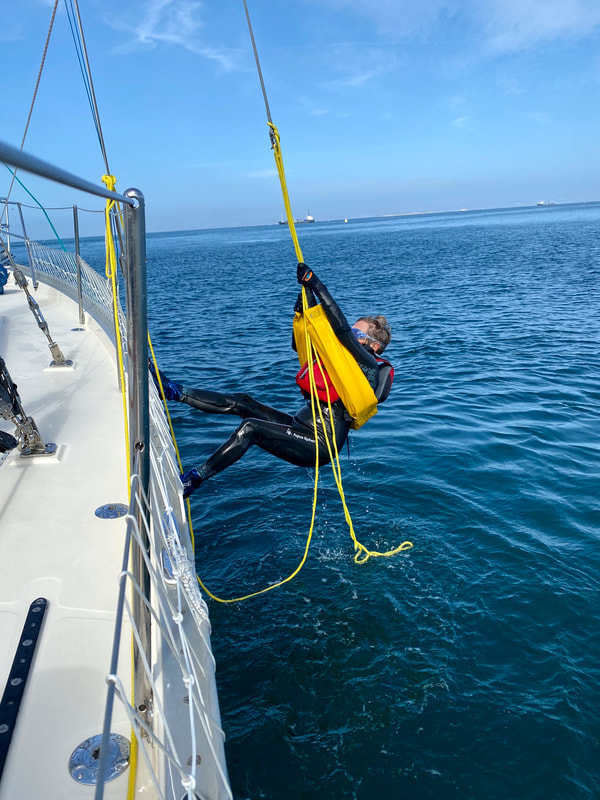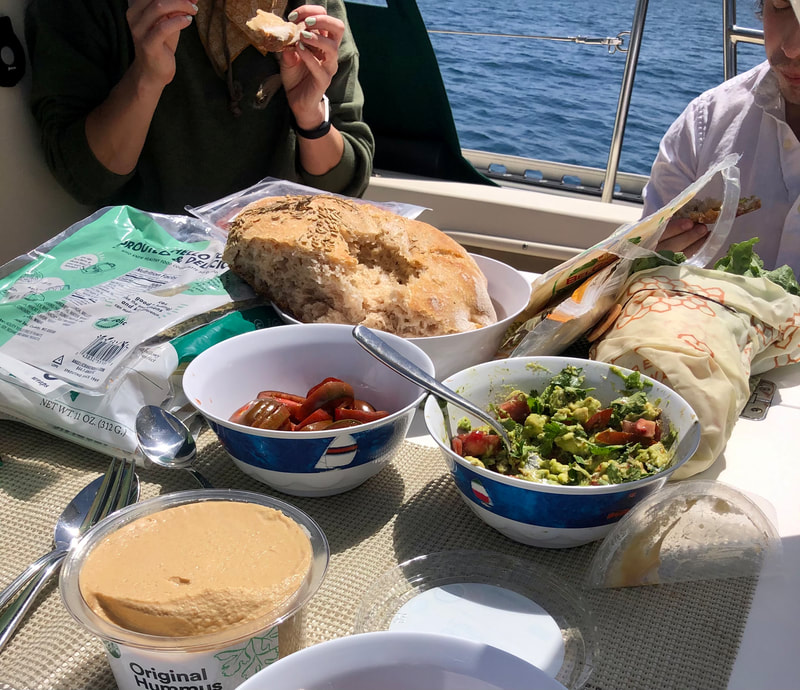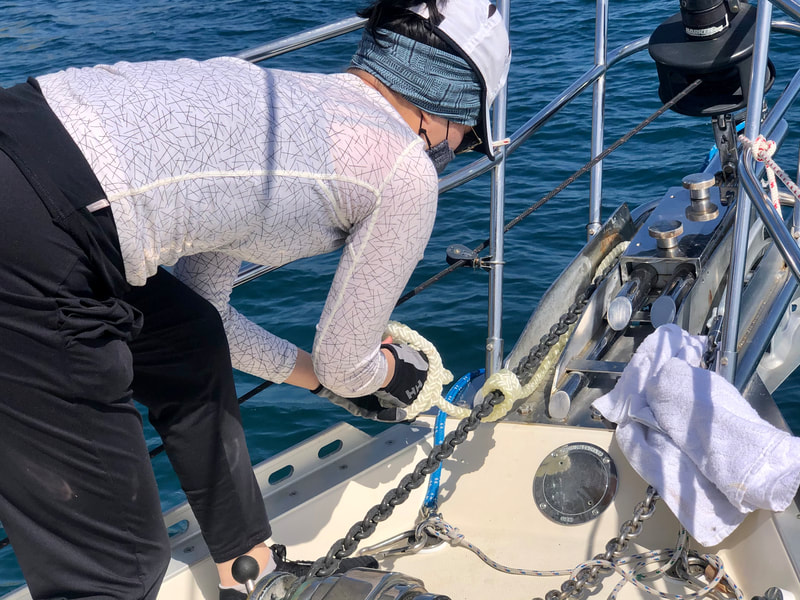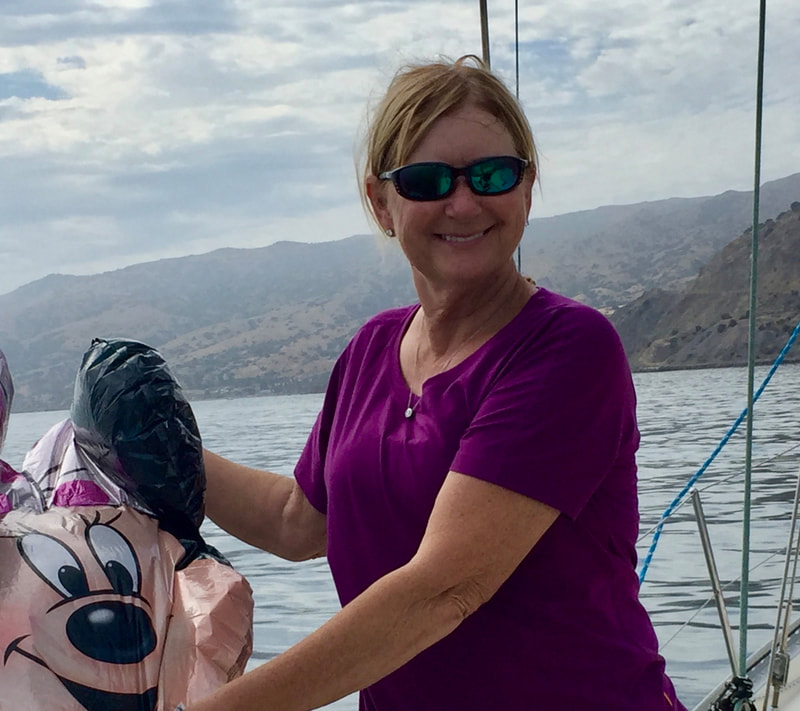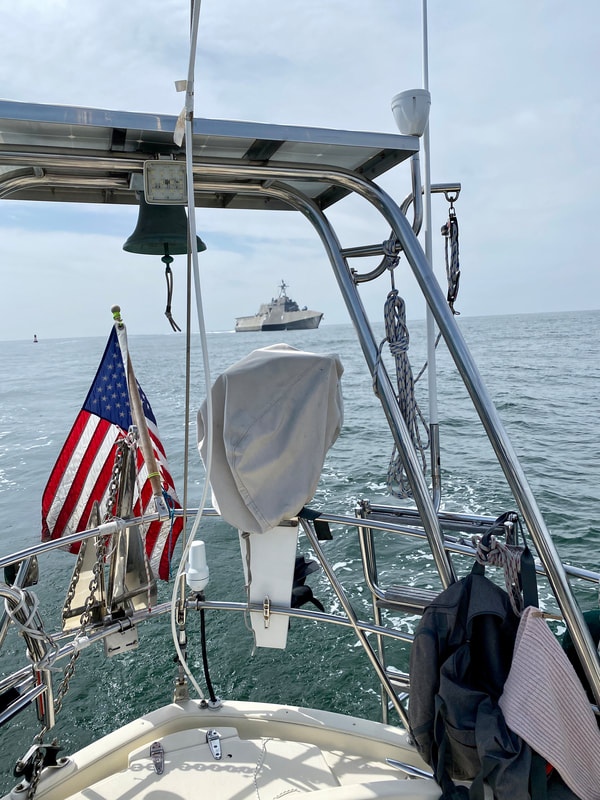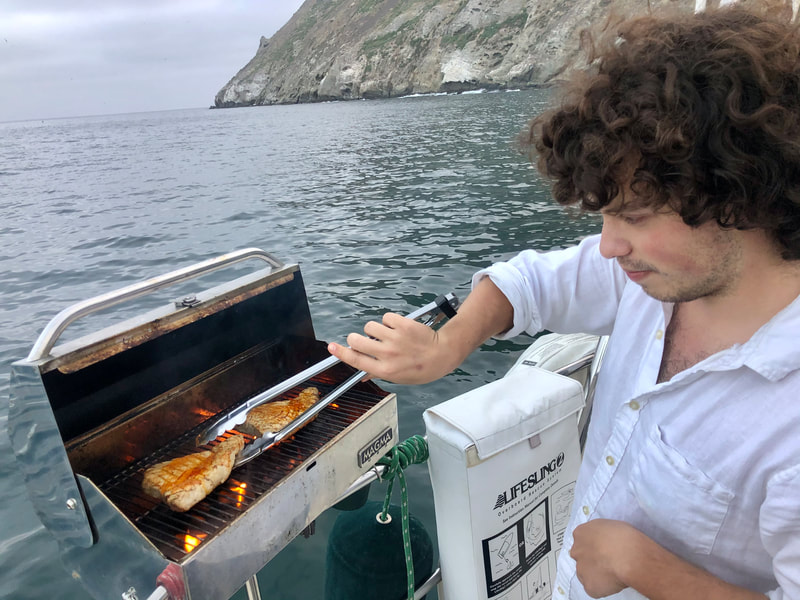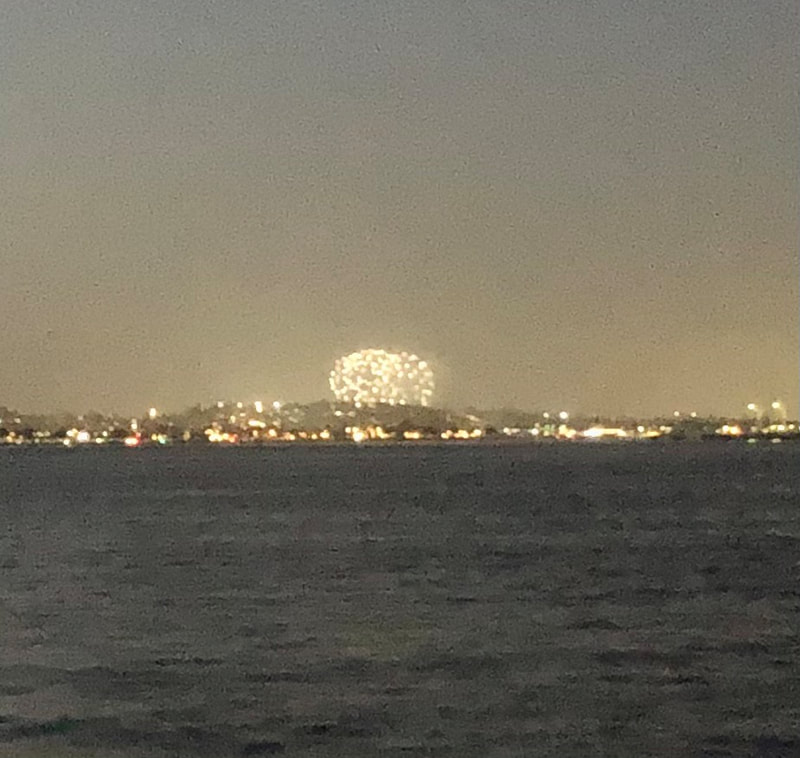4/9/21 to 4/11/21 night crossing to Los coronados with christian, katarina and victoria, diane4/12/2021 WHAT WE LEARNED:
VICTORIA: 1 - The most important consideration when at anchor is to be ready to leave within minutes. This means ensuring jacklines are down, cockpit lines are organized with no floating lines in the water, the ignition key is stowed in the ignition (yellow float tucked into the plexiglass), and other relevant preparations are taken before going below deck. 2 - I learned how, when, and why to flush the generator with fresh H20 - How Follow these steps:
When When returning to dock, if the generator has been used for any significant amount of time (i.e. after a weekend cruise). Why If you don't rinse the generator with fresh water, the saltwater that runs through it to cool the system while in use will have a corrosive effect on the generator, leading to performance issues and reducing it's lifespan. Q for Diane: If at sea for an extended period of time (e.g. a 3 week ocean crossing), how frequently should this be done? Answer: Done after each voyage. 3 - a simple thing that should seem obvious but isn't inherently part of some of our 'checklists', but to ALWAYS do a visual check to ensure there are no lines in the water before turning on the engine. 4 - when packing provisions, do not bring disposable plastic packaging; bring in reusable containers for food storage bags (take from the galley if advanced coordination is possible). KATARINA: 1. Become more aware of your communication style. A pause can be perceived as ignoring or not engaging with other types of communicators. Say, "I'm thinking this through." or "I don't know." 2. Adjust your communication style to the situation. Ask questions when there is space and time, not when things are chaotic. 3. Follow commands but also remember your personal knowledge. Listen to instruction but don't forget steps in between. 4. The head pump works better than you thought. Pushing the lever helps bring water in. Pulling the lever firmly suctions the contents out, including the stubborn floaters :-D 5. Being Captain is not easy! Captain must have keen situational awareness, and always keep a running checklist of people, tasks, and timing according to the current situation and next anticipated move. 6. "Right-of-way" is a bad word! Use "stand-on" vessel instead; maintain your course and speed if you are the stand-on vessel. 7. Indicate clearly with big turns when you are the "give-way" vessel. Turn hard to starboard, to clearly indicate to the stand-on vessel that you see them. 8. Keeping a vigilant watch is essential and even more important at night. Other vessels may change direction, so keep a constant lookout and know the rules. 9. Make a call and say it outloud. Vocalize your thoughts so the rest of the crew knows what you are thinking. DIANE: 1. IF YOU DO NOT KNOW WHERE SOMETHING BELONGS ...ASK 2. PUT THINGS BACK WHERE THEY BELONG 3. DON'T HIDE THE CHOCOLATE! 4. SAY THANK YOU WHEN YOU RECEIVE FEEDBACK 5. LISTEN, LISTEN, LISTEN 6. FILL THE TEA POT BEFORE BED AND USE THE MANUAL FOOT PUMP AT NIGHT 7. SHOW WHERE THE HIGH WATER ALARM AUDIO SWITCH TURN OFF IS - NEXT TO COMPANION WAY STAIRS 8. WHEN YOU TURN OFF THE PROPANE, SOLENOID, HEATER ANNOUNCE IT TO THE CREW 9. WHEN CLIMBING ONTO THE BOAT WITH THE LIFE SLING, REPEL ON THE SIDE OF THE HULL
0 Comments
Leave a Reply. |
|

